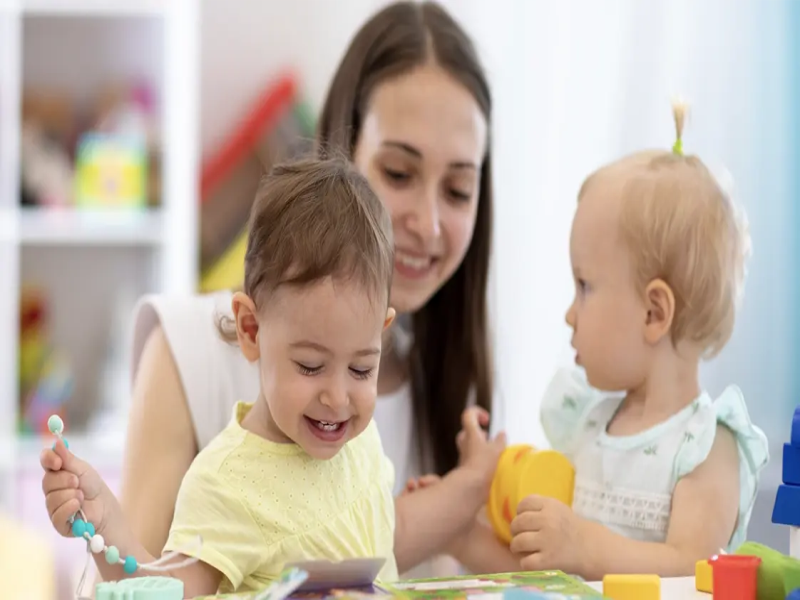Raising a child with special needs is like a unique trip. It’s packed with distinct pleasures and obstacles. You love your kid beyond words, but the extra tasks, deep emotions, and planning problems can lead to stress. Sometimes, you may even feel burnt out. This is where being mindful can change everything. With mindfulness, you get the inner power to deal with the struggles of caring for a special needs child.
It helps you manage stress better and deepens your bond with your kid. This complete guide walks you through specific issues that parents like you face. It dives into how mindfulness can remodel your life. It also gives handy tips and methods to boost your strength and wellbeing. If you’re a new parent seeking help, or an experienced one searching for fresh coping strategies, this write-up has important insights and tools for you. It helps you flourish on this unique, uplifting journey.

Understanding Mindfulness
Let’s first get a grip on what mindfulness is and how it can aid special needs parenting before diving into its specific applications. It’s important that we lay a solid groundwork.
What is Mindfulness?
Ever practice mindfulness? It’s like a curious kid. Watching the world with wonder, no grudges at all. Focus on what you feel now, not yesterday or tomorrow, just now. It lets you feel your thoughts, emotions, your body. Like noticing the breeze on a sunny day; you’re part of it, but you don’t let it sweep you away. That’s mindfulness, being here, soaking in the ‘now.’ Not lost in past memories, not fretting about what’s next.
Benefits of Mindfulness
Studies indicate that mindfulness techniques can create several positive impacts like:
- Eased Stress and Worry: Mindfulness soothes our nervous system and helps balance emotions, thus curbing the physical and mental impacts of stress.
- Boosted Attention and Focus: By directing your awareness to the ‘here and now’, mindfulness aids in sharpening focus and attention, even when distractions abound.
- Better Emotional Control: Mindfulness guides you to recognize your emotions without critique, allowing for more thoughtful, balanced reactions.
- Deepened Self-Awareness: Mindful observation can lead to better comprehension of your thoughts, emotions, and actions, promoting self-acceptance and personal development.
- Enhanced Relationships: Mindfulness helps to deepen our connections with others, promoting understanding, kindness, and clear communication.
Mindfulness for Special Needs Parenting
Mindfulness is good for all, but especially for parents of special needs kids who often deal with extra strains. Special Needs Parents and Their Tough Situations
- Higher Stress and Worry: Looking after a special needs child can be hard and unpredictable, causing more stress and anxiety.
- Troubles With Sleep: Parents of special needs children often have problems with sleep because of nighttime care or concern for their child.
- Feelings of Guilt and Uncertainty: Parents can feel guilty and uncertain when handling a child’s diagnosis and managing special needs care.
- Struggles to Set Boundaries: Setting limits with a special needs child can be difficult, which can lead to feeling very tired or even burned out.
- Less Time for Self-Care: The busy life of a special needs parent can leave little space for self-care, making it hard to focus on personal health.
How Mindfulness Can Help
Mindfulness offers special parents practical tools for tackling difficulties. This includes:
- Managing Stress: Mindfulness can lower stress and anxious feelings, leading to a relaxed and balanced emotional state.
- Better Sleep: Mindfulness aids in better sleep by settling the mind and body before sleep time.
- Self-Kindness: It nurtures self-kindness, assisting parents in dealing with guilt and self-questioning in a gentle, understanding way.
- Setting Limits: Mindfulness boosts the consciousness of personal needs and limits, making it simpler to create healthy boundaries and focus on self-care.
- Finding Calm: Even with the day-to-day demands of being a special parent, mindfulness allows parents to uncover calm, bonding moments in daily chores.
Mindfulness Practices for Special Needs Parents
Here are some handy mindfulness techniques ideal for parents with special needs children:
- Breathing Drills: Stress-relieving breathing exercises like diaphragmatic or box breathing, are crucial. Take a couple of minutes each day for these calming drills, especially during stress-filled or anxious times.
- Guided Meditations: There are structured meditations available on apps or online for practicing mindfulness. Opt for ones that emphasize stress relief, relaxation, or cultivating self-worth.
- Mindful Movement: Try integrating mindful activities like yoga, tai chi, or a simple walk into your usual routine. These activities marry physical movement with mindful awareness, aiding in relaxation, body cognizance, and stress relief.
- Mindfulness in Common Tasks: Make house chores like showering, doing dishes, or laundry folding, mindful moments. Focus on the present moment’s sensations, visuals, and audios, and fully submerge in the activity, leaving judgments and distractions behind.
- Mindful Ties with Your Child: Seek out mindful engagements with your child, even in the midst of their unique challenges. Participate in activities that encourage being present and focused, like reading a story, playing a game, or simply being outdoors.

Addressing Common Challenges with Mindfulness
Paying attention on purpose, often called mindfulness, is a strong aid for handling unique hurdles that can pop up in parenting specially-abled children. Now, we’ll examine how using mindfulness strategies can assist in dealing with tension, enhancing our sleep, developing kindness towards oneself, establishing beneficial limits, and making self-care a priority.
Stress and Anxiety
Special needs parenting can often lead to ongoing stress and worry. This can impact your health, both mentally and physically. Mindfulness can be a great tool to help cope with this stress, promoting peace and resilience.
- Deep Breathing: Simple routines like diaphragmatic breathing or box breathing may aid in easing anxiety and stress. Make this a routine, especially when feeling overwhelmed.
- Visualization: Imagine a relaxing or peaceful scenario. This can shift your focus from stress to calm.
- Mindfulness-Based Stress Reduction (MBSR): MBSR is a program combining mindfulness meditation, body awareness and gentle movements. These can lessen the stress and enhance overall health. You can join a local MBSR program or find online resources to learn more about this method.
Sleep Difficulties
Not getting enough sleep can make stress worse, especially for parents of children with special needs. Practicing mindfulness may get you better sleep by calming both your body and mind.
- Relax: Try relaxation techniques like gradual muscle relaxation or guided sleep meditation to ready yourself for sleep.
- Calm Bedtime Ritual: Have a peaceful bedtime routine with relaxing activities like reading, a warm bath, or soft music. Avoid looking at screens before sleep, as the blue light can mess with your sleep.
- Mindful of Sleep: Notice how you sleep and find any things that might be messing with your sleep. This knowledge may help you make changes to make your environment better for sleep.
Guilt and Self-Doubt
Many parents of special needs children may grapple with guilt and self-doubt. Feeling uncertain about your parenting skills, anxious about your child’s future, or guilty for not fulfilling every need of your child is normal. Mindfulness is a tool to understand these emotions better, showing kindness towards oneself.
- Notice Your Emotions: It’s crucial to identify feelings of guilt and self-doubt. Try not to judge these emotions, just feel them without letting them take control.
- Shift Negative Thoughts: Attempt to turn negative thoughts and self-blaming thoughts into positive statements and practical expectations. Celebrate your parenting achievements and remember your strengths.
- Be Kind to Yourself: Show yourself the same compassion you would give a friend. Acknowledge that you’re doing your utmost in a difficult situation.
- Live in the Now: Mindfulness inspires present moment attention, avoiding past regret or future worry. This perspective allows you to enjoy and navigate the reality of parenting, moment by moment.
Setting Boundaries
It’s important to set up good boundaries for your own health and to avoid exhaustion. Sometimes saying “no” or putting yourself first can be hard, but being mindful can guide you to be aware and strong enough to create and keep good boundaries.
- Understand What You Need: Think about your needs and what’s important to you. What can’t you handle? What things or situations tire you out?
- Express Yourself Clearly: Tell your kid, partner, family, and anyone else involved in your kid’s care about your boundaries in a straightforward and kind way.
- Get Comfortable with “No“: It’s fine to say “no” to things or promises that make your day too busy or hurt your wellbeing.
- Put Self-Care On Your To-Do List: Set aside time for activities that are good for your mind, body, and spirit. You could exercise, be in nature, follow your hobbies, or just take a few quiet moments each day to think.
Limited Time for Self-Care
Self-care can be tough for any parent, more so for those handling extra needs parenting. Mindfulness may offer you self-care sparks in your day, even in the chaos.
- Mindful Moments: Slip in brief mindful actions into your day like taking slow breaths before reacting to hard behavior, or appreciating a peaceful tea break.
- Mindful Timeouts: Plan little gaps in your day for rejuvenation and stress relief. A brief session of mindful breathing or stretching can shift things.
- Hand Over Tasks and Seek Assistance: Don’t hesitate to pass on jobs or request support from loved ones or experts. This can give you a chance to concentrate on your health.
- Utilize Tiny Moments: Snag chances for self-care in fleeting moments such as enjoying your top tracks while driving or going for a mindful stroll during your child’s therapy hour.

Additional Resources for Special Needs Parents
Here are some additional resources that may be helpful for special needs parents who are interested in learning more about mindfulness:
- Books:
- Mindful Parenting for ADHD by Mark Bertin, M.D.
- The Mindful Child by Susan Kaiser Greenland
- Peaceful Parent, Happy Kids by Dr. Laura Markham
- Apps:
- Calm
- Headspace
- Insight Timer
- Online Courses and Programs:
- Mindful Schools: Offers online courses and resources for educators and parents.
- The Center for Mindful Self-Compassion: Provides online programs and resources on self-compassion.
- Organizations:
- The National Alliance on Mental Illness (NAMI): Offers support and resources for individuals and families affected by mental illness.
- The Autism Society of America: Provides information, support, and advocacy for individuals with autism and their families.
Conclusion
Raising a kid who requires extra support isn’t always easy. Still, it comes with incredible moments too. With mindfulness, the trip gets a bit simpler. It helps reduce stress and build strength and happiness. Using mindfulness daily can boost how you deal with pressure, your bond with your kid, and discovering moments of tranquility and happiness while managing the unique tasks of parenting. Don’t forget, mindfulness gets better with practice and patience. Begin with tiny moves, treat yourself kindly, and cheer for every improvement made. By adopting mindfulness, you can have a more rewarding and steady experience for both you and your child along this one-of-a-kind trip.







